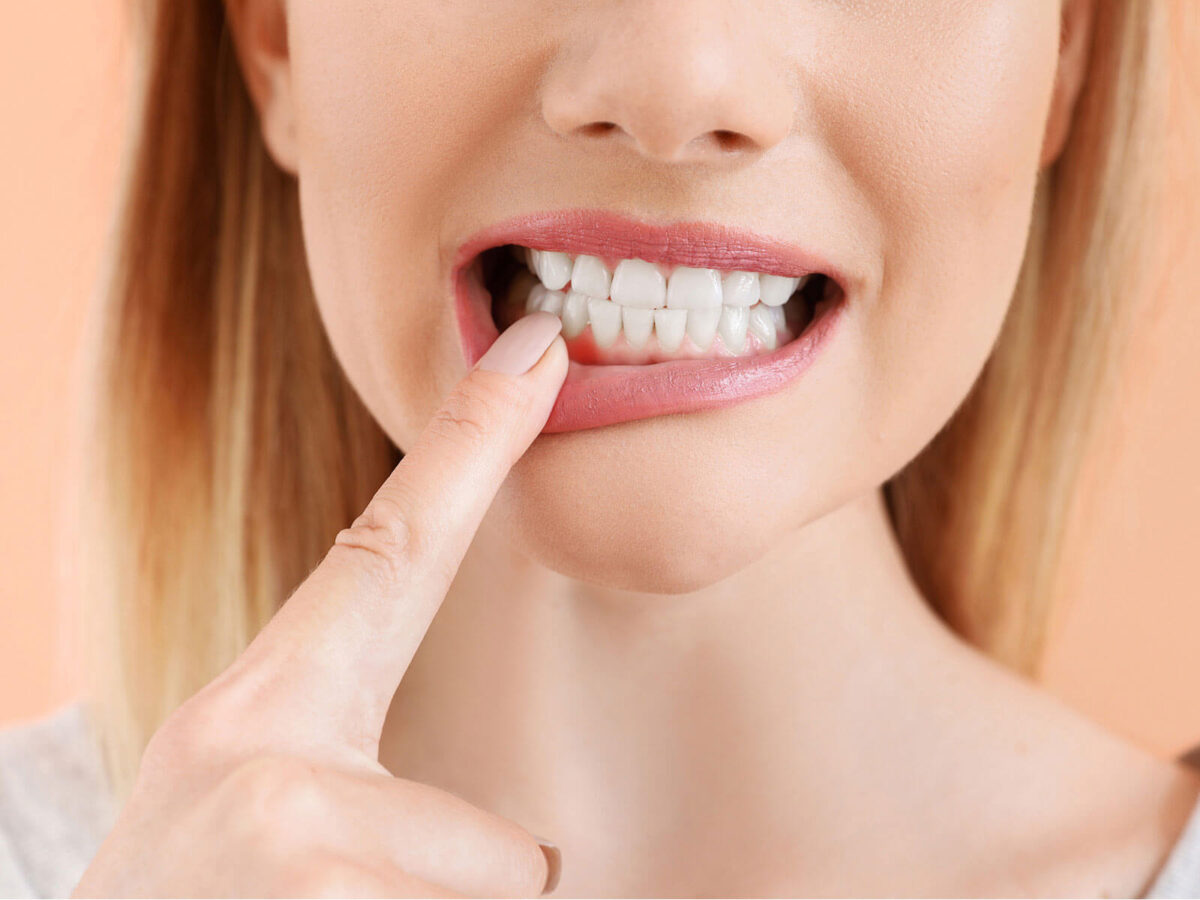Blog
Dental hygiene tips for healthy teeth & gums

How can I prevent Enamel Loss And Damage?
Your smile reflects your overall health; healthy enamel is critical for oral health. Enamel, your teeth’s protective outer coating, is prone to erosion and damage over time. Adopting preventive measures is essential for preserving the integrity of your teeth and promoting long-term oral health. This comprehensive blog offers practical techniques to maintain your smile, upkeep dental hygiene, and prevent enamel erosion.
1. Create a Comprehensive Oral Care Routine:
a. Gentle Brushing Methods:
Soft-Bristled Brush: To reduce abrasive damage to the enamel, use a soft-bristled toothbrush. Brush softly in circular motions, paying attention to all surfaces of your teeth.
Avoid Aggressive Brushing: Brushing aggressively can promote dental enamel deterioration. To keep your enamel healthy, be thorough yet gentle.
b. Toothpaste with Fluoride:
Fluoride toothpaste can help to strengthen enamel and guard against decay.
Amount: Use a pea-sized amount of toothpaste to clean without abrasion thoroughly.
c. Brushing regularly:
Brush your teeth at least twice daily, preferably after meals, to eliminate plaque and avoid acid accumulation. Wait at least 30 minutes after eating acidic foods before brushing to avoid injuring weakened enamel.
2. Mindful Eating Habits:
a. Avoid Acidic Foods and Drinks:
Reduce your intake of citrus fruits: Limit your intake of highly acidic foods such as citrus fruits.
Acidic Drinks: Limit your consumption of acidic beverages such as sodas and fruit juices.
Rinse After Consumption: Rinse your mouth with water after consuming acidic foods or drinks to neutralize acids.
b. Sugar Reduction:
Limit Sugary Snacks: Limit your intake of sugary snacks and beverages, as they contribute to acid production.
Select Wisely: Choose healthier snacks, including fruits, vegetables, and dairy products.
c. Consume Water:
Drink plenty of water throughout the day to neutralize acids, cleanse the mouth, and increase saliva production.
Water Rinse: After eating acidic or sweet foods, rinse your mouth.
3. Use Fluoride Mouthwash:
a. Further Fluoride Protection:
Fluoride Rinse: For further enamel protection, consider using a fluoride mouthwash.
b. Follow Instructions:
Follow your dentist’s recommended usage guidelines for enamel protection.
c. Chew Sugar-Free Gum:
Stimulate Saliva Production: Chewing sugar-free gum stimulates saliva production, which aids in acid neutralization and mouth cleanliness.
d. Xylitol Advantages:
Xylitol-containing gum has been linked to enamel remineralization.
4. Deal with teeth grinding (bruxism):
a. Nightguards:
Consider using a nightguard to protect your enamel if you grind your teeth, especially at night.
b. Customised Nightguard:
For maximum enamel protection, consult your dentist about a customized nightguard.
5. Regular dental examinations:
a. Professional Cleaning Services:
Visits every two years: Visit your dentist for professional cleanings and check-ups at least twice a year.
Early Detection: Regular dental appointments enable the early detection and treatment of enamel concerns.
b. Fluoride Treatments:
Professional Application: To strengthen enamel, your dentist may offer in-office fluoride treatments.
Individualized Approach: Treatment regimens are created specifically for you and your enamel health.
6. Smoking Cessation and Tobacco Use: a. Effect on Enamel Health:
a. Destroy enamel and stain:
Smoking and tobacco usage can discolor and destroy enamel.
b. Benefits of Quitting:
Quitting smoking improves general oral health, including enamel maintenance.
7. Keep Up to Date and Educate Yourself:
a. Recognise Enamel Health:
Keep up-to-date on dental health practices and the variables contributing to enamel loss.
b. Consult Your Dentist:
Consult your dentist to learn more about your unique risk factors and preventative strategies.
8. Calcium and Phosphorus-Rich Diet:
a. Dairy items:
Include dairy items in your diet for calcium, which is necessary for enamel remineralization.
b. Lean Meats and Nuts:
For optimal enamel health, include phosphorus-rich foods such as lean meats and nuts.
10. Acid Reflux Management:
a. Consult a Healthcare Professional:
Acid Reflux Treatment: If you suffer from acid reflux, seek the advice of a medical practitioner to help you manage the disease.
Reduce Stomach Acid Exposure: Reducing stomach acid exposure helps with acid erosion prevention.
11. Pregnancy and Child Protection:
a. Prenatal and Paediatric Care:
Prenatal Guidance: To promote appropriate prenatal care, pregnant women should discuss their oral health with their healthcare providers.
Early pediatric dental appointments and excellent oral care provide the groundwork for a lifetime of enamel health.
Conclusion
Enamel preservation necessitates a holistic approach, combining proper oral hygiene, appropriate dietary choices, and frequent dental care. Using these preventive measures, you can protect your enamel, support general dental health, and keep your smile looking great for years. Remember that personalized advice from your dentist is crucial in developing a strategy tailored to your specific requirements and concerns.
